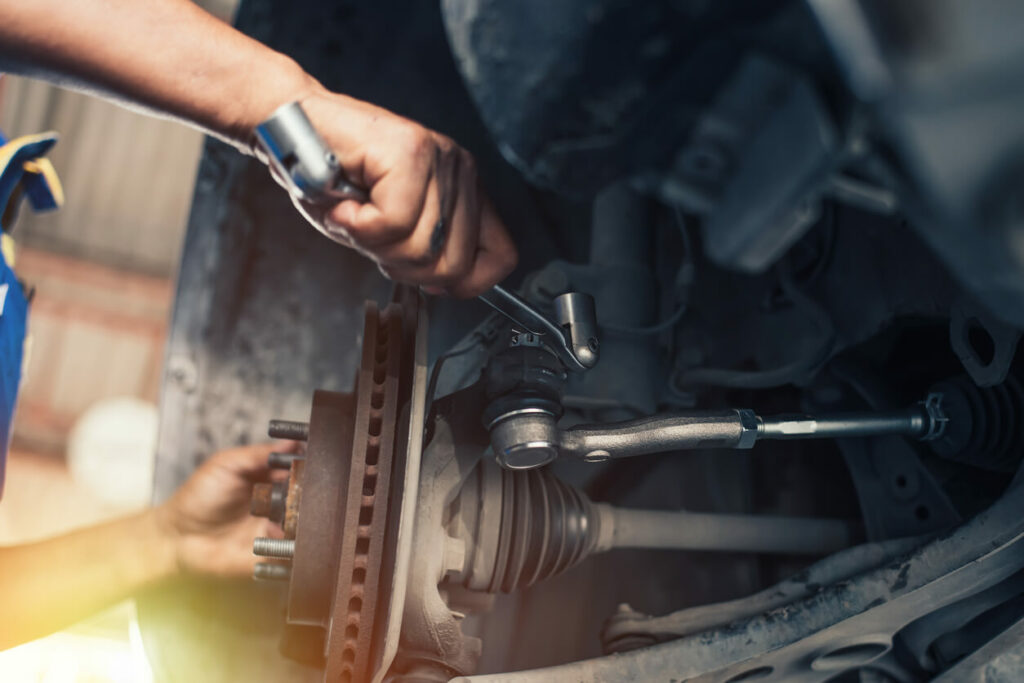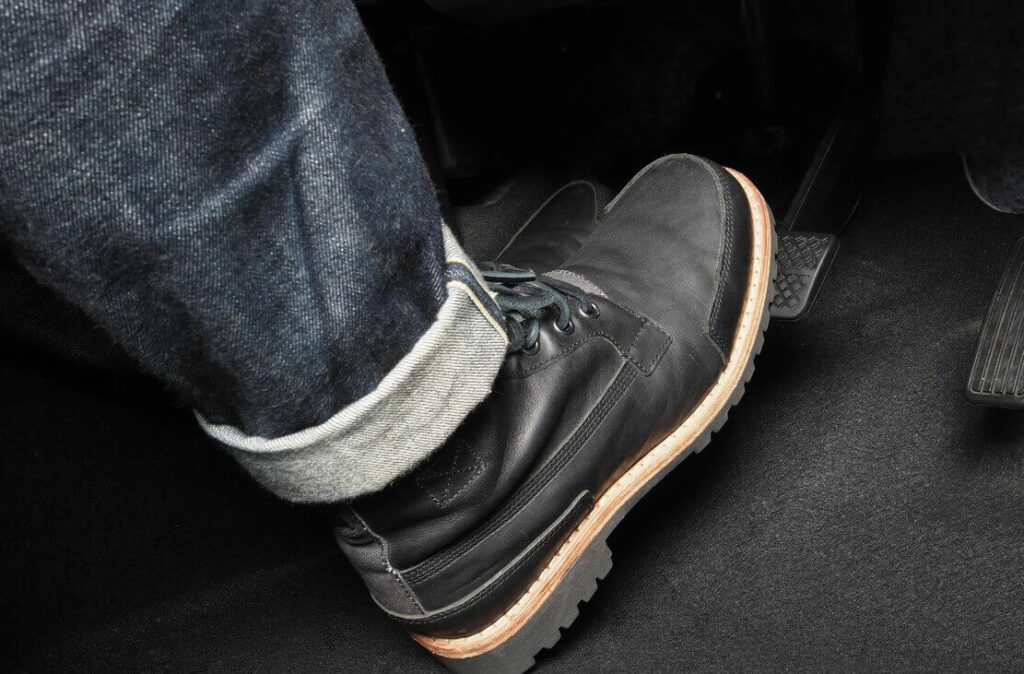Many of us depend on vehicles to take us anywhere we need to go, whether it be work, school, or the doctor’s office. So, it can be nerve-wracking to think something could be wrong with your vehicle. A common issue that people often worry about is brake quality—and you don’t have to be a vehicle expert to notice the beginnings of a brake issue.
The six warning signs in this article will help you know when it’s time to take your vehicle in for a brake check. When that time does come, the helpful hands at Kennedy Transmission will be there to assist your brake needs.
Unsettling Car Sounds
Hitting the brake inside your car sets forth a series of motions that result in your vehicle stopping. Brake fluid flows toward your brake system and causes your calipers to push your brake pads against your rotor. This friction is what stops your vehicle. Over time, your car brake pads will start to wear down.
Screeching Vehicle Sounds
The first indication your brake pads are wearing thin is a screeching noise. This is caused by a piece of metal within the brake pad becoming exposed and scraping against your rotor. If you hear this screeching noise, you can visually check your brake pads.
You can look through the spokes on your tire to see the metal of the rotor. By looking around the edge of the rotor, you should be able to identify the metal caliper. From there, look at the brake pad. It should be around 1/4 of an inch thick. You can also remove your tire to get a better look.
If your brake pads aren’t worn or if they were recently replaced, the screeching noise could also indicate your rotors are glazed. When investigating your rotor, you may notice blue marks or dark rings that indicate excessive braking has burned the metal. This likely means you need new rotors.
Grinding Sounds Coming From the Car
Another noise you may hear is a disturbing metal grinding or growling sound. This likely comes after the screeching. It means your brake pads have completely worn down. Unfortunately, the metal-on-metal friction could scratch the rotor or even meld the metal together, thus making your brakes stick. Sticky brakes are hazardous and should be seen by a professional immediately.
Need new brakes or rotors for your vehicle? Schedule an appointment with Kennedy Transmission today to feel safe on the road tomorrow!
Unusual Car Movement

Experiencing vehicle or steering wheel shaking while attempting to brake can be alarming, and you may wonder why it’s happening. Below, we’ll discuss the potential reasons your brakes could be causing unusual movement, shaking, or pulling.
Shaking Vehicle
Having worn or dirty brake pads can lead to the shaking of your vehicle. When your brake pads collect dirt or debris, they can spread it to your rotor. If your rotor becomes dirty, it can lead to shaking.
Your calipers can also collect dirt or debris that will lead to shaking. They can also become worn or corroded. Anytime brake pads can’t press evenly and consistently to the rotor, you’ll experience shaking.
The rotor itself may even cause some vehicles to shake or jolt to a stop. When rotors become unbalanced or warped from the use of worn brake pads, you’ll likely notice some shaking.
Experiencing other shaking? Kennedy Transmission can diagnose other issues with your vehicle to give you peace of mind.
Vehicle Pulling
If you notice your car pulling to one side or the other while braking, this could indicate you have brake issues. It could be a sign that the brake lining is wearing unevenly and should be repaired. Another cause of pulling could be foreign substances in your brake fluid. If this is the case, it must be drained and replaced by a professional.
Inappropriate Brake Control
Most drivers get to know their vehicle in a matter of weeks. You know best how your vehicle moves and the speed at which it accelerates and brakes. If you’re out of the adjustment period and notice your vehicle braking differently than expected, you likely need to have it checked by a professional.
Under Braking
If you feel as though you’re pressing the brake pedal to the floor in order to brake properly, this is a serious warning your brakes could be beginning to fail. This could be indicative of an air bubble in your brake fluid or even a leak in your brake fluid lining, resulting in low fluid.
Some people prefer to lightly press their brake while approaching a red light, hoping to not fully stop. While this is an OK practice now and again, doing this repeatedly causes heat to build up between your brake pad and rotor. Eventually, the amount of friction needed to stop your vehicle will increase, making it difficult for your brakes to work properly.
Insensitive brakes could also be an issue with hydraulic systems, so make sure you take your vehicle to a service shop to diagnose your under-braking issue.
Over Braking
On the other hand, you may notice your car braking at the slightest press of the pedal, jolting you and your passengers. This can, and should, be as scary as under braking. Sensitive brakes can be a symptom of uneven rotor wear or a sign you need to replace your brake fluid. Whichever it is, you should allow a professional to service your vehicle.
Frequently Asked Questions About Brakes

How often do I need to have my brakes serviced?
Most manufacturers recommend a service every 10,000 miles.
How long do brakes last on a car?
The short answer is that brakes can last around 25,000 to 60,000 miles. The long answer is your brake pads last about 25,000 to 70,000 miles, while rotors usually last 50,000 to 70,000 miles. It’s recommended to have your brake fluid replaced every 30,000 miles.
How expensive are new brakes?
Depending on labor and part costs, new brakes typically cost anywhere from $60 to $230 per axle.
The next time you notice your brakes aren’t working as you expect them to or they’re causing your vehicle to move in ways you don’t want, it’s best to leave it to a professional to fix them. Kennedy Transmission has plenty of skilled workers to get you back on the road so you can breathe easily.

